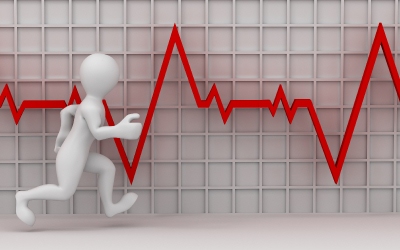Should Athletes Have their Hearts Tested Before Competing?
When triathlete Warren Cornwall, 42, crossed the finish line at the age-group national championships in Burlington, Vermont, other participants weren’t so lucky. Cornwall heard of at least 14 casualties during that race and he notes, ‘Maybe that could have been me.’ Was there anything Cornwall could do to look out for his wellbeing more effectively?
‘I set out to find what medical experts would say to that question,’ says Cornwall. ‘Which was how I came to be sitting in [Dr. Aaron Baggish’s] Cardiovascular Performance Lab, a windowless room barely big enough to hold a rowing machine, treadmill, stationary bicycle and computer terminal. This is where athletes go when Baggish, now 37, wants to see their hearts in action.’
Cornwall explains, ‘All the doctors I spoke to say that, before training, athletes should get a physical exam and discuss their plans with a physician, preferably one experienced in working with athletes. This simple visit is the centerpiece of recommendations from the American Heart Association. It tops the list of advice issued in October by a group that reviewed triathlon deaths for USA Triathlon, the sport’s governing body in the US, and it’s something many athletes don’t do.’
Baggish considers a stress test the best way to see what happens to a heart during competition. He notes, ‘There are people who will disagree with the approach, but I feel strongly it’s the best way to determine whether an athlete is at risk.’ One such critic is Dr. John Mandrola, a bike racer and former triathlete in Louisville, Kentucky, whose specialty is the heart’s electrical system. ‘There’s no evidence right now that routine stress testing on people without symptoms does anything,’ he warned, adding ‘It’s extremely unlikely that a 42-year-old person with no risk factors, or even one risk factor, has an undiagnosed disease.’
However, when Cornwall’s test results came back saying that everything was fine, he says ‘A weight I hadn’t known I was carrying suddenly lightened. I’d expected that result all along, but felt reassured by those cryptic graphs and Baggish’s experienced judgment…I, like many, have decided that the adrenaline surge when the horn sounds, the rush of speeding down a straightaway on the bike, the thrill of finding one more gear in my legs in the last mile, is worth it. But now, before suiting up for the next race, at least I can reassure my family I’ve done what I can to make sure I’ll come home.’


Comments are closed.